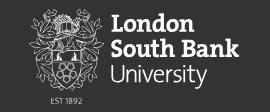About Occupational Therapy Bsc (hons) in London South Bank University (LSBU)
This full-time programme provides an understanding of the science and artistry of occupational therapy. You should possess a keen interest in activity-based therapy, rehabilitation, good communication skills, and a desire to work with people to achieve their goals and promote independence.
Why Occupational Therapy at LSBU?
- No. 1 in London for student satisfaction and graduate prospects in Occupational Therapy (Complete University Guide 2019).
- Professional accreditation: we’re accredited by the Royal College of Occupational Therapists.
- 1st in London for career prospects (Guardian League Table 2020).
- Professional links: this course can enable you to become a registered occupational therapist, approved by the Health and Care Professions Council.
- Work placements across a variety of clinical settings, such as NHS acute Trusts, community placements and the independent sector.
- Our three Occupational Therapy Labs, with facilities including simulated living spaces and artistic intervention tools.
- 1st in London for teaching, academic support, learning opportunities, assessment and feedback (National Student Survey 2019).
Facilities
We have three Occupational Therapy Laboratories, including an Art and Music skills laboratory, Splinting laboratory and Assisted Daily Living (ADL) laboratory. You will carry out a range of activities to practice your skills including using art, music and role play as intervention. You will practice making hand splints using thermoplastic materials as well as anatomy practicals using anatomy models. The simulated kitchen, bathrooms and bedroom spaces are used to practice patient transfers, wheel chair manoeuvering and planning activities for intervention using activities from daily life. You also practice using a wide range of standardised assessment tools such as: assistive devices for dressing, kitchen work and mobility.
The laboratories enable you to practice problem identification, intervention planning, implementation, communication skills, risk assessments, problem solving skills and group work skills; all to learn how best to work with the patient.
Students with high grades in English at Standard XIIth will be considered (please contact us for details).
Indian Standard XII English – all other State Exam Boards.
If your first language is not English you must have 6.0 minimum International English Language Test Score (IELTS) results at the time of applying:
London South Bank University (LSBU) Highlights
| University Type |
Public University |
| Campus Setting |
Urban |
| Establishment Year |
1992 |
| No. of Schools |
7 |
| No. of Campuses |
2 |
| No. of Residences |
4 |
| Graduate Job Rate |
89% |
| Student-Teacher Ratio |
17:1 |
| External Income |
£2 million |
| Cost of Attendance |
£14,780 |
| Applications Accepted |
Online |
| Work-Study |
Not available |
| Intake Months |
January and September |
| Mode of Program |
Classroom and online |
London South Bank University Average Tuition Fees And Other Expenses
| Course |
Tuition Fee |
| Undergraduate |
£13,780 |
| MSc; MA; PG Diploma |
£13,780 |
| MBA |
£15,100 |
| MPhil; PhD |
£13,780 |
The weekly cost of living for students living in hostel accommodation and private accommodation is, respectively, £206–356 and £225–515.
London South Bank University Admission Process
- Application: The international students may apply by filling the LSBU application form. In absence of the preferred course in the list, UG and PG students may apply, respectively, via ‘UCAS’ and ‘UKPASS’.
- Application deadline:
UG Courses: January 15 (UCAS); June 30 (UCAS Extra)
PG Courses: There is no fixed closing date for PG courses.
- General requirements: Academic transcripts, official degree completion certificate, English language certificate.
- Additional requirements: Passport copy, current visa, 2 academic references with official stamp, research proposal (PG research students), CV.
- English Proficiency Test: The students need to demonstrate English language proficiency through the tests given below.
| Test |
UG |
PG |
| IELTS |
6.0 |
6.5 |
| PTE Academic |
52 |
60 |
| GCSE/O-Level/IGCSE |
Grade C |
Grade C |
| Cambridge English: Advanced |
Grade C |
Grade C |
